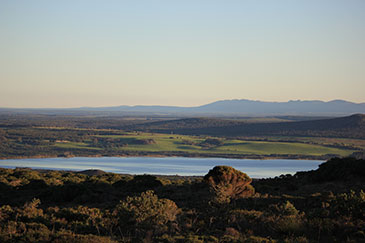Nadisha Sidhu and Francesca Santoni have been researching the Great Southern region’s unique wildlife as part of a new exchange initiative with the University of Western Australia in Albany.
Comparing territory sizes mapped in 1994 and 2005, Sidhu was able to examine findings drawn from different areas in Australia as part of her investigation for her thesis into the habitat of the scrub bird. The noisy endangered species was considered extinct before its rediscovery in 1961.
Santoni, who is the course representative, has been working on the comparison of success with capture and camera traps in catching small rodents at Cape Arid National Park and Two People Bay, and is currently processing thousands of images to collate in her results.
The exchange initiative is an optional component of the MSc in Global and Wildlife Health and Conservation, an innovative postgraduate programme combining applied aspects of Veterinary Sciences and Conservation Biology into a single award. Cutting-edge topics, taught by the School of Veterinary Sciences at Langford and by Bristol Zoo, range from capture and handling techniques to endangered species breeding programmes. Founded by Dr Andrew Kennedy, Senior Teaching Fellow and Director of Taught Postgraduate Programmes in the School of Veterinary Sciences, the programme provides a global perspective on conservation issues and gives students the option to carry out their research in Australia as well as in the UK.
Sidhu said: ‘It’s as if the course has been tailormade for me; it aligns exactly with what I wanted to study. It has provided me with a nourishing experience that has helped me grow both personally and academically. It was a great opportunity to do research in Australia, and I am really grateful to Dr Kennedy for putting so much heart, vision and hard work into this exchange programme.'
